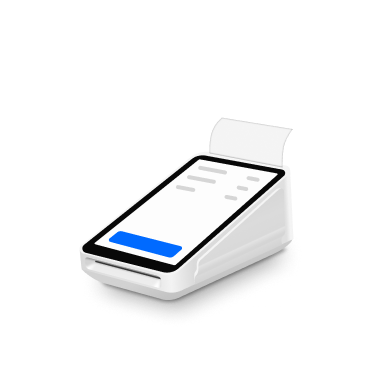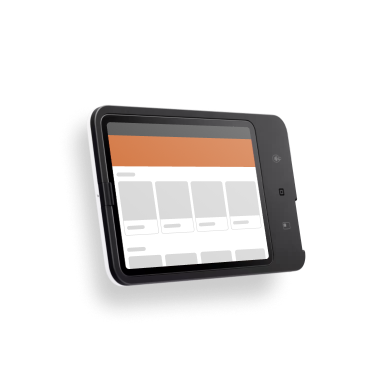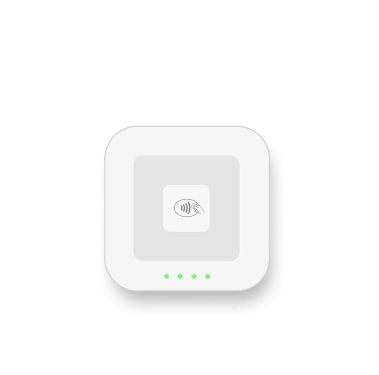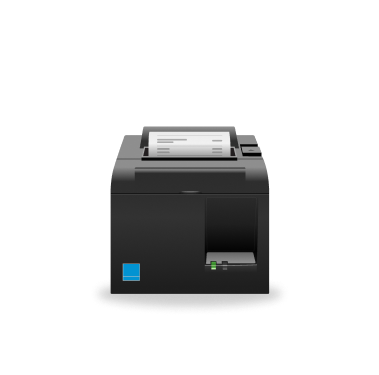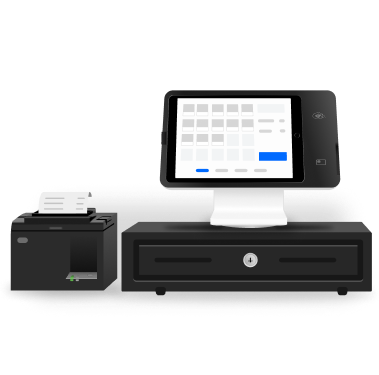Please update your browser.
Download the latest version of a supported browser below to get the most out of this website:
General
Modern Slavery Statement
Block, Inc. | Modern Slavery Statement
(Fiscal year ended December 31, 2024)
(Adopted on October 26, 2023; As Last Amended on October 24, 2024)
1. INTRODUCTION
This Modern Slavery Statement applies to Block, Inc. (“Block”) and all its subsidiaries (together the “Block Group”). Acts of modern slavery will not be tolerated by the Block Group in any of its business dealings. Block believes all companies have a responsibility to ensure that people are not exploited at any level of our supply chain. We are fully committed to preventing modern slavery practices in relation to the use of our products and services, through our business operations, and across our supply chain.
This Modern Slavery Statement was drafted in accordance with Australia’s Modern Slavery Act 2018 (Cth), pursuant to section 54(1) of the U.K. Modern Slavery Act 2015, and Canada’s Fighting Against Forced Labour and Child Labour in Supply Chains Act, SC 2023, c 9, and constitutes the Block Group slavery and human trafficking statement for the financial year ending 2024. This statement applies to the Block Group operations in 2024 and has been subject to consultation with, and approved by, the board of directors of Block’s Australian reporting entities:, Square AU Pty Ltd. (ABN 38 167 106 176) and Afterpay Australia Pty. Ltd.(ABN 15 169 342 947) (the “Australian Reporting Subsidiaries”) (prepared as a joint statement), U.K. subsidiaries and its Canadian reporting subsidiaries, including Square Canada, Inc. and Square Technologies, Inc. (the “Canadian Reporting Subsidiaries”). This statement was also approved by the Board of Block.
Block’s Australian Reporting Entities and the subsidiaries they own and control are outlined in Annexure A to this Modern Slavery Statement.
2. OUR STRUCTURE, OPERATIONS, BUSINESS AND SUPPLY CHAINS
Block is a global technology company with a focus on financial services. Made up of Square, Cash App, TIDAL, and TBD, we build tools to help more people access the economy. Square makes commerce and financial services easy and accessible for sellers with its integrated ecosystem of technology solutions . With Cash App, anyone can easily send, spend, or invest their money in stocks or bitcoin. Afterpay brings Square and Cash App together, connecting consumers and businesses including through the provision of buy-now-pay-later financial services. Artists use TIDAL to help them succeed as entrepreneurs and connect more deeply with fans. TBD is building an open source platform.
The Block Group has over 10,000 employees worldwide and operates in over 50 countries, managing a global supply chain of over 2,100 suppliers. Our supply chain consists of the provision of direct and indirect goods and services, corporate partnerships, and manufacturing services for hardware products.
3. RESPONSIBILITY
Responsibility for our anti-slavery and human trafficking initiatives lies with the following individuals/functions:
- Our policies supporting the prevention of modern slavery practices are managed by the Chief Legal Officer (or equivalent title thereof), with appropriate board-level oversight.
- Block’s Compliance team monitors all Square,Cash App and Afterpay transactions on a transaction-by-transaction basis to flag potential illicit transactions, which may include funds used for human trafficking or money laundering to conceal human trafficking.
- Any concerns that are raised related to the Block Group’s modern slavery practices will be reviewed pursuant to Block’s Code of Business Conduct and Ethics or Block’s Supplier Code of Business Conduct and Ethics (“Block Ethics Code”) and reported to Block’s Board and the relevant subsidiary’s board of directors, as applicable. This includes reporting to the management and boards of directors of the Australian Reporting Entities, Block’s U.K. subsidiaries, and the Canadian Reporting Subsidiaries.
- All Block Group employees are required to review and accept the Code of Business Conduct and Ethics on an annual basis, which sets forth Block’s expectations concerning its zero-tolerance policy on forced labor and child labor.
4. RELEVANT POLICIES
Block operates the following policies, which apply to all entities in the Block Group, that describe its approach to the identification of modern slavery risks and steps to be taken to prevent slavery and human trafficking in its operations:
- Code of Business Conduct and Ethics: This policy requires all Block employees, officers and directors to identify and prevent modern slavery practices from being incorporated in Block’s supply chain. Employees are required to undergo a training and attestation of compliance with this policy on an annual basis. Employees, officers and directors are expected to report any potential violations, and they are provided with the opportunity to do so anonymously.
- Supplier Code of Conduct and Business Ethics: This policy requires all suppliers of products and services to Block, including consulting firms, independent contractors, staffing agencies and licensees (“Block Suppliers”), to identify and prevent modern slavery practices from being incorporated in Block’s supply chain. Block Suppliers are expected to report any potential violations, and they are provided with the opportunity to do so anonymously.
- Anti-Human Trafficking policies and procedures - Block maintains policies and procedures in relation to the identification and management of human trafficking on our platform.
- Block, Inc. Anti-Money Laundering / Counter Terrorist Financing Policy: Block’s global policy for monitoring the transactions of its Square, Cash App and Afterpay customers on a transaction by-transaction basis to reduce the potential for money laundering which could be financing human trafficking or other modern slavery practices.
- Local Anti-Money Laundering and Counter Terrorist Financing Programs: Block’s relevant international subsidiaries have programs for monitoring the transactions of its Square, Cash App and Afterpay/Clearpay customers on a transaction-by-transaction basis to reduce the potential for money laundering which could be financing human trafficking or other modern slavery practices.
- Vendor Management Policy: This policy sets forth a risk based approach for reviewing and assessing risks from third party vendors to Block, including our manufacturing vendors and staffing agency partners.
5. RISK ASSESSMENT AND DUE DILIGENCE PROCESSES TO ADDRESS SLAVERY AND HUMAN TRAFFICKING IN OUR OPERATIONS AND SUPPLY CHAIN
We have a multi-tiered vendor risk management program to review and assess risks to Block and its customers,which further supports the ongoing risk assessments of our regulated subsidiaries in Australia, the U.K. and Canada, in particular.
Block expects that our suppliers will not tolerate any form of exploitation in their business or any part of their supply chain. Block Supplier evaluation and selection may include an assessment of each Block Supplier's business practices and corporate values.
The following activities are considered to be at high risk of causing, contributing to or being directly linked to slavery or human trafficking:
-
Misuse of Block’s financial products and services: Block’s business is subject to a wide range of laws and regulations in the jurisdictions in which it operates including AML/CTF (Anti-Money Laundering / Countering the Financing of Terrorism) legislation1 as well as U.S. Treasury Department’s Office of Foreign Assets Control and applicable sanctions requirements. In turn, Block follows the international framework proposed by the Financial Action Task Force and refers to guidance produced by the Joint Money Laundering Steering Group in the U.K. Block’s applicable UK regulated subsidiaries must also comply with applicable AML/CFT legislation and the relevant parts of the Financial Conduct Authority handbook for firms. Block’s Australian subsidiaries are variously subject to oversight by the Australian Securities and Investments Commission, the Australian Prudential Regulation Authority, and reporting to the Australian Transaction Reports and Analysis Centre and Block’s applicable Canadian regulated subsidiaries are similarly subject to oversight by the Financial Transactions and Reports Analysis Centre of Canada in respect of Canadian AML/CTF legislation. Block is committed to developing, implementing and maintaining an effective, risk based AML/CTF Program, which is reasonably designed to prevent Block from being used to facilitate money laundering, which could be used to finance human trafficking or other modern slavery practices. Block implements a risk-based approach in countering the risks posed to Block and the ecosystem in which Block operates, including modern slavery practices. Risk assessment and management is an ongoing process conducted both at the subsidiary and group levels and is continuously evaluated so that the greatest resources are assigned appropriately to those areas that pose the greatest risk.
-
Labor practices of our contingent workforce: Block utilizes contingent workers to support its business operations in Block’s physical offices, remotely, and through business process outsourcing arrangements. All Block Suppliers are expected to conduct business in accordance with this Block Ethics Code, including instituting appropriate policies and practices, and communicating and enforcing the provisions of the Block Ethics Code throughout their organization and across their supply chains and subcontractors. The Block Ethics Code includes specific requirements for fair working practices, lawful wages, and requirements that Block Suppliers not engage in forced or child labor.
-
Supply chain risk: Block Suppliers are global and diverse. In addition to the Block Ethics Code, Block requires its hardware suppliers to comply with the Supplier Code of Conduct and Ethics, which includes more specific and rigorous requirements for all manufacturing Block Suppliers.
Block further employs a multi-tiered vendor management risk process for evaluating indirect vendor risk, that includes:
- Risk assessment and ratings to facilitate efficient risk-based oversight and monitoring;
- Initial due diligence prior to the start of the vendor relationship and contracting;
- Contract structuring and review;
- Ongoing oversight and monitoring of vendors; and
- Offboarding processes to ensure appropriate activities are completed when terminating a vendor relationship.
We have a cross-functional Third Party Risk Management team, which comprise of representatives from:
- Legal;
- Third Party Risk Management (Procurement);
- Third Party Relationship Owners;
- Risk subject matter experts (business continuity and disaster recovery, compliance, finance, information security); and
- Local management teams and board of director oversight in Australia, Canada and the U.K.
6. MEASURING OUR EFFECTIVENESS IN COMBATING SLAVERY AND HUMAN TRAFFICKING & OUR CONSULTATION PROCESS
Block understands that reducing the risk of modern slavery and human trafficking in its business and supply chains is an important goal that requires the development of targeted policies and procedures, training, and ongoing iterations of existing policies and procedures, to continually renew its commitment to this noble goal. Currently, Block conducts annual audits of its two main hardware manufacturers, and these audits evaluate them in part based on their labor practices, including their non-use of forced labor and child labor. We may request that other Block Suppliers provide us with a self-assessment as to their adherence to the standards and principles of the Supplier Code of Conduct.
Based on Block's assessment of its supply chain, it did not identify any instances of child or forced labor. Accordingly, no further specific steps were required to remediate child or forced labor or the loss of income associated with remediation efforts.
We are continuing to develop appropriate policies to review, measure and mitigate the risks of modern slavery practices in our business and across our supply chain.
This statement was prepared in consultation with Block’s Australian Reporting Entities, and the entries they own or control (as outlined in Annexure A).
7. AMENDMENTS
We are committed to continuously reviewing and updating our policies and procedures. Any material changes to this Modern Slavery Statement must be approved by the Board of Directors of Block, Inc.
Annexure A - Australian Reporting Entities and their subsidiaries
Square AU Pty. Ltd. (ABN 38 167 106 176)
Afterpay Australia Pty. Ltd. (15 169 342 947)
Afterpay Warehouse Trust (66 793 727 918)
1 May also be referred to as AML/CTF based on local legislation.


